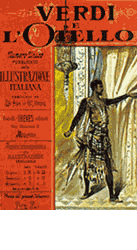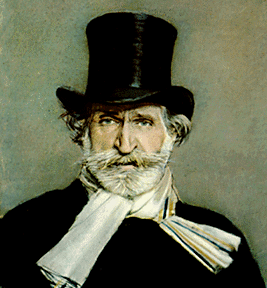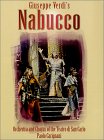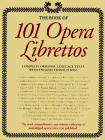|
Later in 1853 he went - with Giuseppina Strepponi, the soprano with whom he had been living for several years, and whom he was to marry in 1859 - to Paris, to prepare Les vêpres siciliennes for the Opéra, where it was given in 1855 with modest success. Verdi remained there for a time to defend his rights in face of the piracies of the Théâtre des Italiens and to deal with translations of some of his operas. The next new one was the sombre Simon Boccanegra, a drama about love and politics in medieval Genoa, given in Venice. Plans for Un ballo in maschera, about the assassination of a Swedish king, in Naples were called off because of the censors and it was given instead in Rome (1859). Verdi was involved himself in political activity at this time, as representative of Busseto (where he lived) in the provincial parliament; later, pressed by Cavour, he was elected to the national parliament, and ultimately he was a senator. In 1862 La forza del destino had its premiere at St. Petersburg. A revised Macbeth was given in Paris in 1865, but his most important work for the French capital was Don Carlos, a grand opera after Schiller in which personal dramas of love, comradeship and liberty are set against the persecutions of the Inquisition and the Spanish monarchy. It was given in 1867 and several times revised for later, Italian revivals.
 Verdi returned to Italy, to live at Genoa. In 1870 he began work on Aida, given at Cairo Opera House at the end of 1871 to mark the opening of the Suez Canal (Verdi was not present): again in the grand opera tradition, and more taut in structure than Don Carlos. Verdi was ready to give up opera; his works of 1873 are a string quartet and the vivid, appealing Requiem in honour of the poet Manzoni, given in 1874-5, in Milan (San Marco and La Scala, aptly), Paris, London and Vienna. In 1879 the composer-poet Boito and the publisher Ricordi prevailed upon Verdi to write another opera, Otello; Verdi, working slowly and much occupied with revisions of earlier operas, completed it only in 1886. This, his most powerful tragic work, a study in evil and jealousy, had its premiere in Milan in 1887; it is notable for the increasing richness of allusive detail in the orchestral writing and the approach to a more continuous musical texture, though Verdi, with his faith in the expressive force of the human voice, did not abandon the 'set piece' (aria, duet etc) even if he integrated it more fully into its context - above all in his next opera. This was another Shakespeare work, Falstaff, on which he embarked two years later - his first comedy since the beginning of his career, with a score whose wit and lightness betray the hand of a serene master, was given in 1893. That was his last opera; still to come was a set of Quattro pezzi sacri (although Verdi was a non-believer).
Verdi returned to Italy, to live at Genoa. In 1870 he began work on Aida, given at Cairo Opera House at the end of 1871 to mark the opening of the Suez Canal (Verdi was not present): again in the grand opera tradition, and more taut in structure than Don Carlos. Verdi was ready to give up opera; his works of 1873 are a string quartet and the vivid, appealing Requiem in honour of the poet Manzoni, given in 1874-5, in Milan (San Marco and La Scala, aptly), Paris, London and Vienna. In 1879 the composer-poet Boito and the publisher Ricordi prevailed upon Verdi to write another opera, Otello; Verdi, working slowly and much occupied with revisions of earlier operas, completed it only in 1886. This, his most powerful tragic work, a study in evil and jealousy, had its premiere in Milan in 1887; it is notable for the increasing richness of allusive detail in the orchestral writing and the approach to a more continuous musical texture, though Verdi, with his faith in the expressive force of the human voice, did not abandon the 'set piece' (aria, duet etc) even if he integrated it more fully into its context - above all in his next opera. This was another Shakespeare work, Falstaff, on which he embarked two years later - his first comedy since the beginning of his career, with a score whose wit and lightness betray the hand of a serene master, was given in 1893. That was his last opera; still to come was a set of Quattro pezzi sacri (although Verdi was a non-believer).
He spent his last years in Milan, rich, authoritarian but charitable, much visited, revered and honoured. He died at the beginning of 1901; 28,000 people lined the streets for his funeral.


|









 View opera OTELLO
View opera OTELLO Verdi returned to Italy, to live at Genoa. In 1870 he began work on Aida, given at Cairo Opera House at the end of 1871 to mark the opening of the Suez Canal (Verdi was not present): again in the grand opera tradition, and more taut in structure than Don Carlos. Verdi was ready to give up opera; his works of 1873 are a string quartet and the vivid, appealing Requiem in honour of the poet Manzoni, given in 1874-5, in Milan (San Marco and La Scala, aptly), Paris, London and Vienna. In 1879 the composer-poet Boito and the publisher Ricordi prevailed upon Verdi to write another opera, Otello; Verdi, working slowly and much occupied with revisions of earlier operas, completed it only in 1886. This, his most powerful tragic work, a study in evil and jealousy, had its premiere in Milan in 1887; it is notable for the increasing richness of allusive detail in the orchestral writing and the approach to a more continuous musical texture, though Verdi, with his faith in the expressive force of the human voice, did not abandon the 'set piece' (aria, duet etc) even if he integrated it more fully into its context - above all in his next opera. This was another Shakespeare work, Falstaff, on which he embarked two years later - his first comedy since the beginning of his career, with a score whose wit and lightness betray the hand of a serene master, was given in 1893. That was his last opera; still to come was a set of Quattro pezzi sacri (although Verdi was a non-believer).
Verdi returned to Italy, to live at Genoa. In 1870 he began work on Aida, given at Cairo Opera House at the end of 1871 to mark the opening of the Suez Canal (Verdi was not present): again in the grand opera tradition, and more taut in structure than Don Carlos. Verdi was ready to give up opera; his works of 1873 are a string quartet and the vivid, appealing Requiem in honour of the poet Manzoni, given in 1874-5, in Milan (San Marco and La Scala, aptly), Paris, London and Vienna. In 1879 the composer-poet Boito and the publisher Ricordi prevailed upon Verdi to write another opera, Otello; Verdi, working slowly and much occupied with revisions of earlier operas, completed it only in 1886. This, his most powerful tragic work, a study in evil and jealousy, had its premiere in Milan in 1887; it is notable for the increasing richness of allusive detail in the orchestral writing and the approach to a more continuous musical texture, though Verdi, with his faith in the expressive force of the human voice, did not abandon the 'set piece' (aria, duet etc) even if he integrated it more fully into its context - above all in his next opera. This was another Shakespeare work, Falstaff, on which he embarked two years later - his first comedy since the beginning of his career, with a score whose wit and lightness betray the hand of a serene master, was given in 1893. That was his last opera; still to come was a set of Quattro pezzi sacri (although Verdi was a non-believer).

